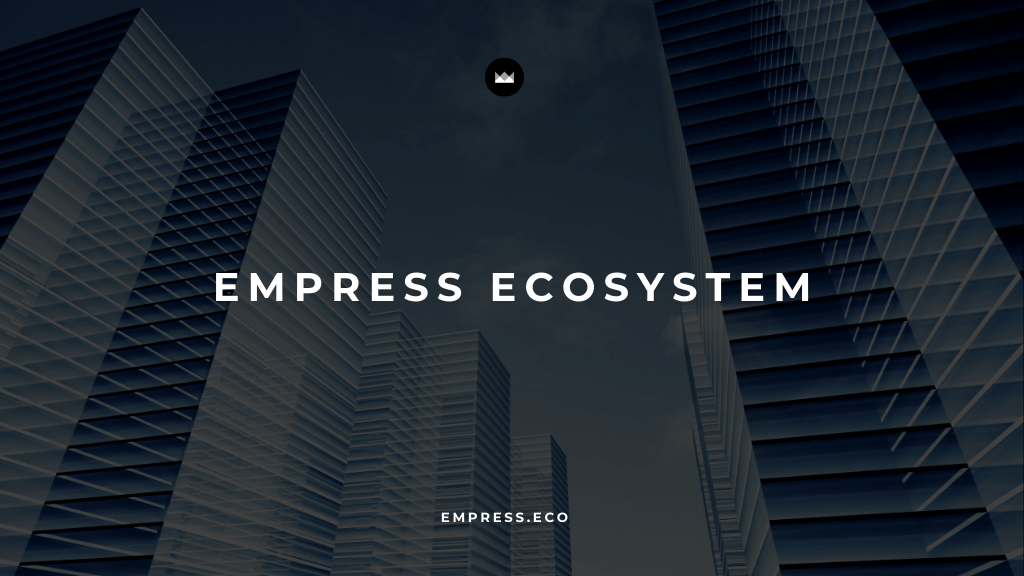
Expand Confidently into Global Markets with EDGE’s Expert Guidance
Enter new markets with culturally aligned strategies ensuring successful global expansion.
Table of Contents
Expanding into new international markets is a critical step for any business looking to achieve global success. However, the path to successful global expansion is fraught with challenges, from navigating complex regulatory landscapes to ensuring that your brand resonates with local cultures. To thrive in new markets, your business must go beyond a one-size-fits-all approach and develop strategies that are tailored to the specific needs, preferences, and regulations of each region. Our Confidently Expand into Global Markets program is designed to guide your organization through this complex process, ensuring that your expansion efforts are both effective and sustainable.
This program provides your team with the tools, strategies, and insights necessary to enter new markets with confidence. By focusing on cultural alignment, regulatory adherence, and localized market strategies, your organization can expand globally while maintaining a strong, competitive edge. Whether you're entering a new region for the first time or looking to strengthen your presence in existing markets, this program will help you build the foundation for long-term global success.
Why Expanding into Global Markets is Essential for Success
In an increasingly interconnected world, businesses that wish to grow and remain competitive must look beyond their domestic markets. However, expanding globally is not just about setting up operations in a new country—it requires a deep understanding of local cultures, consumer behaviors, and regulatory requirements. Without this understanding, even the most well-intentioned expansion efforts can falter.
Localization is key to overcoming these challenges. It involves adapting your products, services, and marketing strategies to align with the unique needs and preferences of each target market. This goes beyond simply translating content into the local language; it includes tailoring your brand messaging, modifying product features, and ensuring compliance with local regulations. By localizing your approach, you can create a strong connection with local consumers, build trust, and increase your chances of success in new markets.
Moreover, regulatory compliance is a critical aspect of global expansion. Each market has its own set of laws and standards that businesses must adhere to, from product safety regulations to advertising guidelines. Navigating these regulatory landscapes can be complex and time-consuming, but it is essential for avoiding legal issues and protecting your brand's reputation.
By integrating cultural and regulatory considerations into your global expansion strategy, your organization can reduce risks, enhance brand recognition, and achieve sustainable growth in diverse markets.
How Global Market Expansion and Localization Will Transform Your Business
Let’s explore the key areas where our program can make a significant impact on your organization:
1. Crafting Effective Market Entry Strategies
The foundation of successful global expansion is a well-crafted market entry strategy. Our program begins by helping you develop customized strategies for entering new markets, taking into account the unique opportunities and challenges of each region.
We guide you in conducting thorough market research to identify the best entry points, whether through direct investment, partnerships, or other strategic approaches. This might involve analyzing market size, growth potential, competitive landscape, and consumer behavior to determine the most effective way to introduce your brand.
For example, if your organization is planning to enter the Asian market, we’ll help you assess the differences between countries such as China, Japan, and South Korea, and develop tailored strategies that address the specific needs and opportunities in each market. By crafting effective market entry strategies, you can ensure that your brand is well-positioned for success from the outset.
2. Localizing Your Brand and Marketing
Localization is about more than just translation—it’s about making your brand feel native to the local market. Our program focuses on helping you align your brand identity and marketing efforts with the cultural norms and consumer preferences of each new market.
We guide you in adapting your brand messaging, visual identity, and marketing campaigns to resonate with local audiences. This might involve modifying your logo, colors, or slogans to better reflect local tastes, or developing region-specific marketing materials that address local needs and concerns.
For instance, if your organization is expanding into the Middle East, we’ll help you adapt your marketing strategies to align with cultural values and sensitivities, such as emphasizing family and community in your messaging. By localizing your brand and marketing, you can build a strong connection with local consumers and increase your brand’s appeal in new markets.
3. Navigating Regulatory Landscapes
Compliance with local regulations is essential for avoiding legal issues and protecting your brand’s reputation in new markets. Our program emphasizes the importance of understanding and adhering to the regulatory requirements of each region.
We guide you in navigating the complex regulatory landscapes of your target markets, from product safety and labeling standards to advertising guidelines and data protection laws. This might involve conducting regulatory audits, working with local legal experts, and developing compliance strategies that ensure your operations meet all legal requirements.
For example, if your organization is entering the European market, we’ll help you understand and comply with regulations such as the General Data Protection Regulation (GDPR), which governs data privacy and security. By navigating regulatory landscapes effectively, you can mitigate risks, avoid costly penalties, and maintain the trust of local consumers and authorities.
4. Adapting Products and Services for Local Markets
To succeed in new markets, your products and services must meet the specific needs and preferences of local consumers. Our program focuses on helping you adapt your offerings to ensure relevance and competitiveness in diverse markets.
We guide you in modifying your products and services to align with local tastes, cultural practices, and market conditions. This might involve adjusting product features, packaging, or pricing to better suit local preferences, or developing new products specifically for certain markets.
For instance, if your organization is expanding into the Indian market, we’ll help you adapt your products to accommodate local dietary preferences, packaging requirements, or pricing sensitivities. By tailoring your offerings for local markets, you can enhance consumer appeal and increase your chances of success.
5. Building Strong Local Partnerships and Alliances
Local partnerships are crucial for establishing a strong presence in new markets and gaining access to local knowledge, networks, and resources. Our program emphasizes the importance of building and nurturing effective partnerships with local businesses and stakeholders.
We guide you in identifying and forming strategic alliances with local partners who can support your market entry and growth efforts. This might involve partnering with local distributors, suppliers, or marketing agencies to leverage their expertise and infrastructure.
For example, if your organization is expanding into Latin America, we’ll help you identify and partner with local distributors who understand the region’s market dynamics and can help you navigate logistical challenges. By building strong local partnerships, you can gain a competitive advantage and ensure a smooth and successful market entry.
6. Conducting Market Research and Gathering Consumer Insights
Thorough market research is essential for understanding the unique characteristics of each target market and developing strategies that resonate with local consumers. Our program focuses on helping you conduct in-depth market research and gather valuable consumer insights to inform your expansion and localization efforts.
We guide you in conducting qualitative and quantitative research to identify consumer preferences, market trends, and competitive dynamics. This might involve using surveys, focus groups, and data analytics to gain a deep understanding of local consumers and their needs.
For example, if your organization is planning to launch a new product in Southeast Asia, we’ll help you conduct research to understand the region’s diverse consumer preferences, purchasing behaviors, and cultural influences. By gathering and analyzing consumer insights, you can make informed decisions and tailor your strategies to meet the demands of local markets.
Achieving Long-Term Success with Global Market Expansion and Localization
By the end of our program, your organization will be well-equipped to enter and thrive in new international markets, with strategies that are culturally aligned, regulatory compliant, and tailored to local needs. Here’s what you can expect:
1. Effective Market Entry Strategies
With a focus on crafting effective market entry strategies, your organization will develop customized approaches for entering new markets, ensuring that your brand is well-positioned for success from the outset. You’ll identify the best entry points, mitigate risks, and capitalize on opportunities in each region.
2. Localized Brand and Marketing Efforts
By localizing your brand and marketing, your organization will create a strong connection with local consumers, enhancing brand recognition and appeal in new markets. You’ll align your messaging, visual identity, and marketing campaigns with local cultural norms and consumer preferences.
3. Regulatory Compliance and Risk Mitigation
With a focus on navigating regulatory landscapes, your organization will ensure compliance with local laws and standards, avoiding legal issues and protecting your brand’s reputation. You’ll develop strategies to manage regulatory risks and obligations effectively.
4. Adapted Products and Services
By adapting your products and services for local markets, your organization will enhance competitiveness and relevance, meeting the specific needs of local consumers. You’ll modify your offerings to align with local tastes, cultural practices, and market conditions.
5. Strong Local Partnerships and Alliances
With a focus on building strong local partnerships, your organization will establish a solid presence in new markets, leveraging local knowledge, networks, and resources to support your growth efforts. You’ll form strategic alliances that provide a competitive advantage and ensure long-term success.
6. Informed Decisions Through Market Research
By conducting thorough market research and gathering consumer insights, your organization will make informed decisions that drive successful market entry and localization efforts. You’ll gain a deep understanding of local consumers and market dynamics, allowing you to tailor your strategies for maximum impact.
Ready to Master Global Market Expansion and Localization?
Our Confidently Expand into Global Markets program is designed for organizations that are ready to enter new international markets with confidence and success. By partnering with us, you’ll gain the tools, strategies, and support you need to navigate the complexities of global expansion, ensuring that your brand resonates locally, complies with regulations, and thrives in diverse markets.
Don’t just expand—localize and lead. Explore our program today and discover how tailored strategies for market entry, cultural alignment, and regulatory adherence can transform your global expansion efforts, enhance your brand’s reputation, and ensure long-term success in international markets. With the right approach, your global expansion isn’t just a possibility—it’s a reality.
Empress Newsletter
Join the newsletter to receive the latest updates in your inbox.







